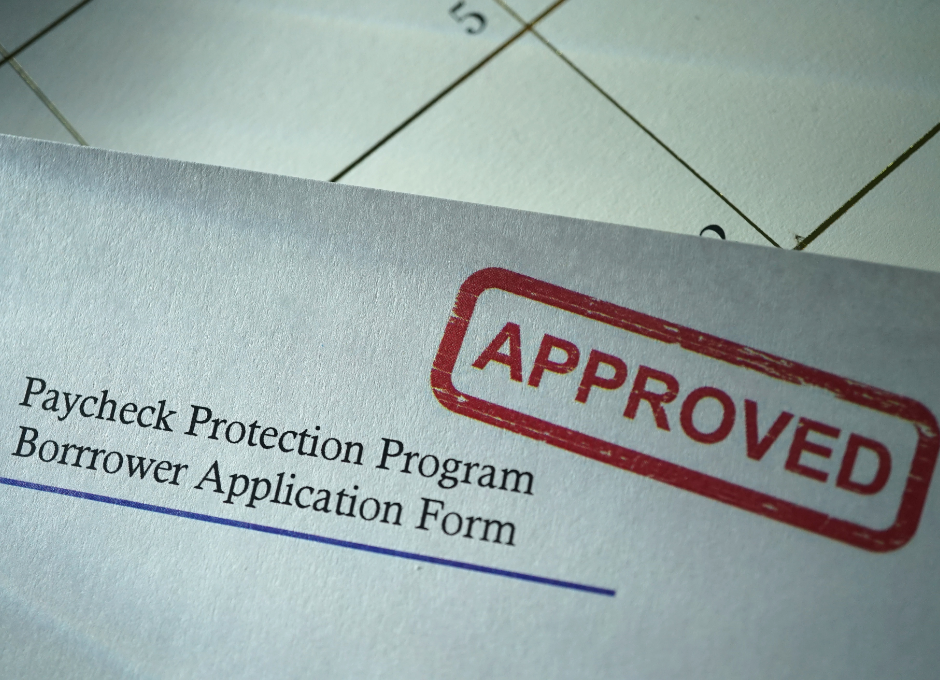Florida has the most golf courses of any state in America, approximately 1,000 people move to Florida each day and Florida produces the most oranges in America, these are few of the crazy facts that you might already know about Florida. However, there is another amazing fact unknown to many is that, Florida is the popular choice for entrepreneurs today.

Florida umbrellas around 2.5 million small businesses, many of them in the tourism, agriculture and science sectors. The business structure popularly followed in the companies in Florida is LLC. But what is LLC and why does the companies in Florida use it? We will answer all this and more right in this article.
This articles covers the following:
- What is an LLC?
- Who should go for LLC?
- What are the advantages of LLC?
- What are the disadvantages of LLC?
- How to start LLC in Florida?
- How can Deskera assist you?
What is LLC?
A limited liability company (LLC) is a US-specific form of a private limited company. It is a business structure that can combine the pass-through taxation of a partnership or sole proprietorship with the limited liability. Take a quick look at this article on- USA taxes on sole proprietorship.
An LLC is not a corporation under state law; it is a company's legal form that provides limited liability to its owners in many jurisdictions. LLCs are well known for their flexibility to business owners, but it depends on the situation.
LLC may elect to use corporate tax rules instead of a partnership. In some instances, LLCs can be organized as not-for-profit. In certain U.S. states like Texas, businesses that provide professional services requiring a state professional license, such as legal or medical services, may not be allowed to form an LLC. However, they may be required to form a similar entity called a professional limited liability company.
The primary characteristic an LLC shares with a corporation is limited liability, and the primary characteristic it shares with a partnership is the availability of pass-through income taxation. An LLC is often more flexible than a corporation and may be well-suited for companies with a single owner as a business entity.
Limited Liability With Corporation
Limited liability is a legal status where a person's financial liability is limited to a fixed sum, most commonly the value of an investment in a corporation, company, or partnership.
Suppose a company that provides limited liability to its investors is issued. In that case, the claimants are generally entitled to collect only against the company's assets, not the assets of its shareholders or other investors.
A shareholder in a corporation or limited liability company is not personally liable for any of the debts of the company, other than for the amount already invested in the company and for any unpaid amount on the shares in the company, if any, except under special and rare circumstances permitting "piercing the corporate veil."
Pass-Through Income Taxation With Partnership
The United States of America has separate federal, state, and local governments with taxes imposed at each level. Taxes are levied on income, payroll, property, sales, capital gains, dividends, imports, estates, gifts, and various fees.
In 2020, taxes collected by federal, state, and local governments amounted to 25.5% of GDP, below the OECD average of 33.5%. The United States had the seventh-lowest tax revenue-to-GDP ratio among OECD countries in 2020, higher than Mexico, Colombia, Chile, Ireland, Costa Rica, and Turkey.
Taxes fall much more heavily on labor income than on capital income. Divergent taxes and subsidies for different forms of income and spending can also constitute a form of indirect taxation of some activities over others.
For example, individual spending on higher education can be said to be "taxed" at a high rate, compared to other forms of personal expenditure, which are formally recognized as investments.
Who Should You Go for an LLC?
Any individual beginning a business, or maintaining a business as a sole proprietor ought to consider framing an LLC. This is particularly evident assuming that you're worried about restricting your lawful responsibility, however much as could be expected.
LLCs can be utilized to claim and run practically any sort of business. Nonetheless, a few kinds of experts in certain states should frame exceptional expert LLCs. An LLC can be utilized for a business of any size-from one-proprietor activities to organizations with numerous co-proprietors. LLCs are likewise the most widely recognized legitimate element used to possess rental and business property.
Advantages of An LLC
LLC comes with a handful of advantages that your business must take a note of. Here is a list of all the advantages of LLC.
Limited Liability
Members aren’t personally liable for the actions of the company. This means the members’ assets such as their homes, cars, bank accounts, investments are protected from creditors seeking to earn from the businesses.
This protection stays in as you run your business on the up-and-up and keep business and personal financials separate.
Pass-Through Taxation
LLCs usually provide their owners with pass-through taxation. The profits or the losses the business incurs pass through the business to the owner's tax return. Such profits are taxed at the owner's tax rates.
Single-member LLCs (SMLLCs) are usually taxed the same as sole proprietorships. The owner reports the LLC's profits, losses, and deductions on IRS Schedule C and files it with their personal return. An LLC with two or more members is usually treated as a partnership for tax purposes. Again, profits or losses are reported on the owners' returns and taxed at their rates.
LLCs are usually pass-through entities. Their owners can qualify for the special pass-through tax deduction created by the Tax Cuts and Jobs Act. This deduction took effect in 2018 and is scheduled to continue through 2025. This is an income tax deduction of up to 20% of the net business income earned by the pass-through business.
High Flexibility
Members can manage an LLC, which allows all owners to share in the business’s day-to-day decision-making. Alternatively, professional managers can manage the business, who can be either members or outsiders.
This is helpful if members want to hire more experienced in running a business. An LLC is member-managed by default in many states unless explicitly stated otherwise in filings with the secretary of state or the equivalent agency.
Helps Startup
Beginning administrative work and expenses for an LLC are moderately light. However, there is a wide variety in what states charge in charges and assessments. The interaction is straightforward enough for proprietors to deal with without extraordinary skill. However, it's really smart to counsel a legal counselor or a bookkeeper for help. Progressing necessities generally come on a yearly premise.
More Credibility
If you are new in the market, then there is a high chance that people don’t know about your company, or even know about your company, they don’t necessarily trust you. With an LLC, your company gains credibility. Consumers will trust your company and your products.
Disadvantages of An LLC
Every coin has two sides, likewise, LLC has both advantages and disadvantages. Since we have looked at the advantages of LLC, let's look at some of the disadvantages of LLC.
Taxes
The IRS considers LLCs as partnerships for tax purposes unless members opt to be taxed as a corporation. If your LLC is taxed as a partnership, the government considers members who work for the business to be self-employed.
This means those members are personally responsible for paying Social Security and Medicare taxes, collectively known as self-employment tax, based on the business’s total net earnings.
If your LLC files forms with the IRS to be taxed as an S corporation, you and other owners who work for the company pay Social Security and Medicare taxes only on your actual compensation rather than on all the company’s pretax profits. Learn about pretax deductions in our short article- Guide to Pretax Deductions.
More Work In case of Employee Turnover
In many states, if a member leaves the company, goes bankrupt, or dies, the LLC must be dissolved, and the remaining members are responsible for all remaining legal and financial obligations necessary to terminate the business. Of course, these members can still do business; they’ll just have to start a whole new LLC from scratch.
Expensive
LCC usually costs more to form and operate than sole proprietor or have a partnership. Filing fees must be paid to legally establish the LLC. Although not legally required, LLCs should adopt a written LLC operating agreement outlining how the LLC will be governed.
Once the LLC is formed, annual fees and taxes will be paid to the state. These vary from state to state but can be as high as $800 per year or more for highly profitable LLCs.
Drawbacks of Investments
LLCs are not ideal for business owners who seek outside investors. This is particularly true if you're looking for funding from venture capitalists, who ordinarily will only fund corporations.
Corporations work best for outside investments because stock can be issued in exchange for investors' money. Outside investors can invest in LLCs and receive LLC ownership interests, but this can be more complicated than a corporation.
Now that we have understood what an LLC is, its advantages and disadvantages, let’s find out how to start one in Florida.
How to Start LLC in Florida?
Here is a stepwise guide to start your LLC in Florida.
Step 1: Select a name for your business
The first step in forming an LLC in Florida is to choose a name for your business. Like other states, Florida law requires you to choose a name for your LLC different from the names of other businesses that are on file with the Division of Corporations. This requirement is designed to prevent confusion among customers and members of the public.
The name of your business must end with “Limited Liability Company,” “LLC” or “L.L.C.” Licensed professionals in Florida can opt to form a professional limited liability company, or PLLC, whose name should end with “Professional Limited Liability Company,” “chartered,” “PLLC” or “P.L.L.C.” You can’t use certain words in your LLC’s name, such as those referencing banks, financial institutions, or agencies of the federal government.
What you also need to keep in mind that before establishing your business, it’s important to check if your business name is available. You can do a preliminary name search on the Division of Corporations’ business name registry. Unlike most states, Florida does not allow you to reserve a business name.
This means you should submit your articles of organization as soon as possible after you do a preliminary search. Otherwise, another company might claim your business name. Remember that the Division of Corporations doesn’t clear names for trademark compliance. If you’re creating an LLC in Florida, it’s up to you or your business lawyer to ensure that your LLC’s name doesn’t infringe on any other company’s rights.
Step 2: Select the Right Agent
The business that operates in Florida must name a registered agent that will accept legal and official mail on the business’s behalf. A registered agent for a Florida LLC can be an individual or a company. They will notify you if your business is sued or receives a government notice.
When forming an LLC in Florida, an individual registered agent must be a Florida resident. A company that serves as the registered agent must be a business entity authorized to operate in Florida.
The registered agent must have a physical address in Florida (P.O. boxes are not sufficient). Your business can’t serve as its own registered agent, but a member or manager of the LLC can. Many businesses find it convenient to use an online legal service, such as Inc File, to serve as their registered agent.
Step 3: Get a Business License
Businesses in several industries need a business license to operate in Florida. The Department of Business and Professional Regulation licenses entrepreneurs in skilled trades, such as architecture and real estate.
The Department of Agriculture and Consumer Services regulates some farm and consumer industries. Smaller agencies regulate the health fields, insurance agencies, group homes, and daycare providers. The Florida Department of State website links to licensing authorities by occupation, so you can read up on what licenses you might need when forming your LLC in Florida.
Companies that use a trading name other than the entity’s legal name must file for a fictitious business name, also known as a DBA or “doing business as" name. You’ll also need to advertise the fictitious name in a county newspaper where your principal place of business is located. Remember that your fictitious name can’t already be used by another business.
Tip: Search Florida’s business name database to ensure your name is available.
Step 4: File Your Organization’s Articles
You need to provide the following list of information:
The Florida LLC articles of the organization require the following information:
- The LLC’s name and principal place of business.
- Registered agent’s name and Florida street address (P.O. Boxes are unacceptable).
- Registered agent’s signature.
- Names and addresses of the LLC’s members.
- Name and address of the LLC’s manager if manager-managed.
- The effective date of the LLC, if not the date of filing (optional).
- Signature of the member or authorized individual completing the form.
File your articles of organization with the Division of Corporations. Your articles of organization officially establish your authority to operate as an LLC in Florida. The filing fee for the articles of organization is $125.
Qualification of Foreign LLCs- LLCs formed in another state but want to operate in Florida must fill out a different form called Qualification of Foreign LLC. This form also has a $125 filing fee, and you should include a certificate of good standing from your home state along with the form.
The state of Florida normally takes about one week to process articles filed online and a couple of weeks to process articles that are mailed in. After the state approves your filing, you can download a copy of your accepted articles online and store them with your other business records. If the state rejects your articles for some reason, you’ll be allowed to make corrections.
Step 5: Draft an LLC operating agreement
Florida LLC operating agreement includes the following information:
- The purpose of the LLC, including products or services offered.
- The names and addresses of the members (and the manager, if there is one).
- Each member’s contributions of value to the LLC.
- Each member’s ownership stake in the company, voting rights and profit share.
- The procedure for admitting new members.
- The procedure for electing a manager if the LLC is manager-managed.
- The LLC’s meeting schedule and voting procedures.
- Dissolution terms and procedures.
Once you have created your LLC operating agreement, make sure all members have an opportunity to review and sign it. Then, store the agreement with other important business documents.
Step 6: Select to be Taxed as Pass-Through Entity or a Corporation.
As an LLC, you have the option to be taxed as a pass-through entity or a corporation. As a pass-through entity, your business will not be responsible for filing separate tax forms. Instead, each member of the LLC will report business earnings and losses on their personal tax returns. Here is a quick guide to tax brackets in the US updated for 2022.
If you opt to be taxed as a corporation, your LLC will be responsible for federal corporate taxes (Florida has no state income tax) and will need to file separate business taxes.
At the federal level, LLC members must pay 15.3% in self-employment taxes to cover social security and Medicare obligations.
If you have employees, you must withhold federal social security and Medicare taxes from your employees and pay the employer's share of these taxes. There’s also a federal unemployment tax that you’ll need to pay in addition to Florida state unemployment taxes.
Step 7: Obtain An EIN
An Employer Identification Number (EIN) is a nine-digit number issued by the IRS to keep track of a business's tax reporting. Florida LLCs with employees or multiple owners, as well as those taxed as corporations, must apply for an employer identification number.
The IRS will ask for your EIN when you file federal business taxes. Additionally, your LLC will also need an EIN when opening a credit card or business bank account in Florida, as well as if you apply for business loans in Florida.
Step 8: File Your Annual Report
Florida doesn’t charge a state income tax. This means that owners of a Florida LLC don’t have to pay any state income taxes on their share of the business’s profits. This can be a big advantage for those forming an LLC in Florida.
The state of Florida does require LLCs to e-file an annual report. The purpose of the annual report is to update the business information on file with the Division of Corporations.
The report is due between January 1 and May 1 of each year to avoid late fees. If not filed by the third Friday in September, your LLC could lose the authority to operate in Florida. The report should be accompanied by a filing fee, which is currently $138.75.
How Can Deskera Assist You?
With Deskera People, your employer would be able to generate your payroll and payslips within minutes. As an employee, you would be able to use the same portal to view your payslips, apply for time off, and even file for your claims and expenses online like for example, expenses related to dependent care and applying for reimbursement for the same through the dependent care FSA funds.
Through Deskera People, your employer would be able to assign you pay components like employee bonuses and voluntary deductions like child care FSAs. These components would be identified by Deskera People to automatically calculate the wages taking in the specific conditions which can be configured in each component like pre-tax deduction and post-tax deductions.
Lastly, Deskera People also has a self-service portal for the employees which will allow you to fill in your own personal information while facilitating a harmonious collaboration between you and your firm’s payroll team.
Key Takeaways
- A limited liability company (LLC) is a US-specific form of a private limited company. It is a business structure that can combine the pass-through taxation of a partnership or sole proprietorship with the limited liability of a corporation.
- Any individual beginning a business, or at present maintaining a business as a sole proprietor, ought to consider framing an LLC.
- Members aren’t personally liable for the actions of the company. This means the members’ personal assets such as their homes, cars, bank accounts, investments are protected from creditors seeking to earn from the businesses.
- LLCs usually provide their owners with pass-through taxation.
- Members can manage an LLC, which allows all owners to share in the business’s day-to-day decision-making.
- Beginning administrative work and expenses for an LLC are moderately light.
- With an LLC your company gains credibility.
- To start your LLC in Florida:
-Select a name for your business
-Select the right agent
-Get a business license for your business
-File your organization’s articles
-Draft an LLC operating agreement
-Selext taxation structure
-Obtain an EIN
-File your annual report
Related Articles:














